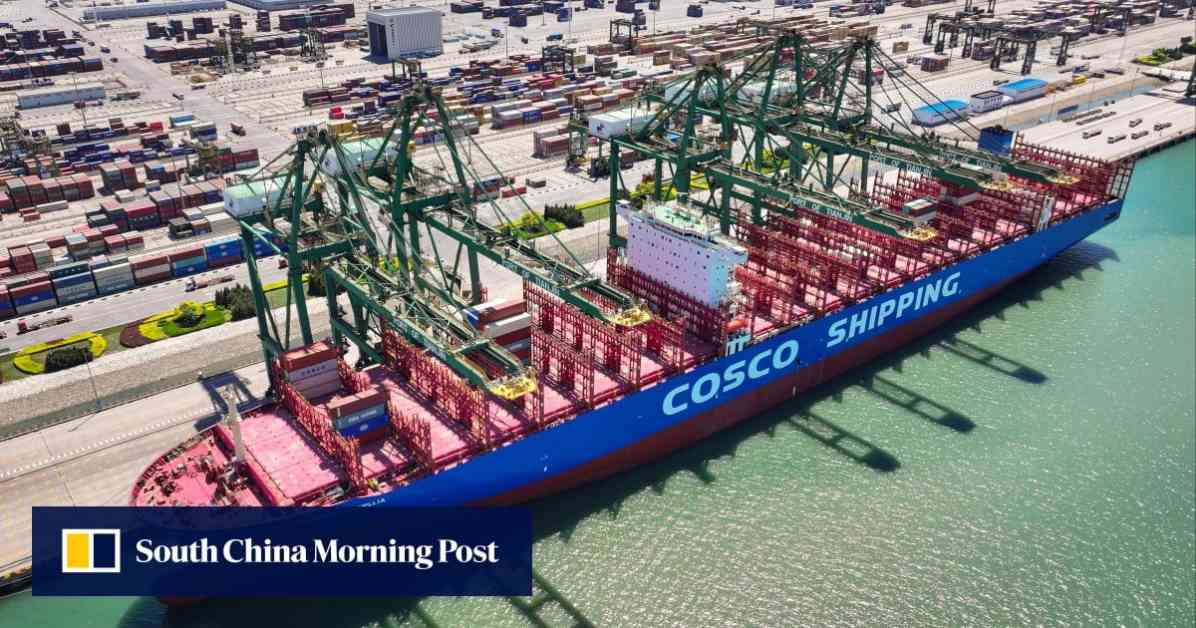Tensions between the world’s two largest economies have reached a boiling point with the recent proposal by the Office of the US Trade Representative (USTR) to impose hefty port fees on Chinese-built vessels and related operators. This move has sparked outrage from China, labeling it as “self-damaging” and warning of potential disruptions in global shipping that could ultimately harm US trade.
The USTR’s proposal comes on the heels of an American investigation that found China guilty of unfair policies and practices that have allowed them to dominate the global maritime, logistics, and shipbuilding sectors. In response, the USTR unveiled a sweeping proposal aimed at crippling Chinese shipbuilders and operators, a move that has left industry experts like Lars Jensen, CEO of maritime consultancy Vespucci Maritime, in disbelief.
Jensen expressed his concerns in an online post, stating, “If the intention is to drastically increase costs for US importers and make US exports uncompetitive, this proposal is likely to do the job.” This sentiment underscores the potential negative impact that the USTR’s proposal could have on the shipping industry and the broader economy.
Industry Backlash and Potential Consequences
The USTR’s proposal includes a significant measure that targets a wide range of operators, with potential implications for anyone operating Chinese-built vessels. These operators could face a new US port fee based on the percentage of Chinese-built vessels in their fleet, with fees potentially reaching up to $1.5 million per US port call. This move could have far-reaching consequences for US importers and exporters, leading to increased costs and decreased competitiveness on the global stage.
In addition to the broad impact on operators, the USTR’s proposal specifically targets China-based vessel operators, such as Cosco, who could face fees of up to $1 million per US port call. This targeted approach aims to hold Chinese operators accountable for their alleged unfair practices, but it also raises concerns about the potential retaliatory measures that China may take in response.
As tensions continue to escalate between the US and China, the shipping industry is bracing for the potential fallout from these proposed port fees. The implications of these measures extend beyond individual operators, with the potential to disrupt global supply chains and strain international trade relations.
Expert Insights and Future Outlook
Industry experts like Lars Jensen are closely monitoring the situation and providing valuable insights into the potential consequences of the USTR’s proposal. Jensen’s assessment that the proposal could increase costs for US importers and hinder the competitiveness of US exports highlights the need for a careful reevaluation of these measures.
As the shipping industry grapples with the uncertainty surrounding the proposed port fees, stakeholders are urged to consider the broader implications of these measures on global trade and economic stability. The outcome of this escalating trade dispute between the US and China remains uncertain, but one thing is clear – the impact of these port fees could reverberate throughout the shipping industry for years to come.



























